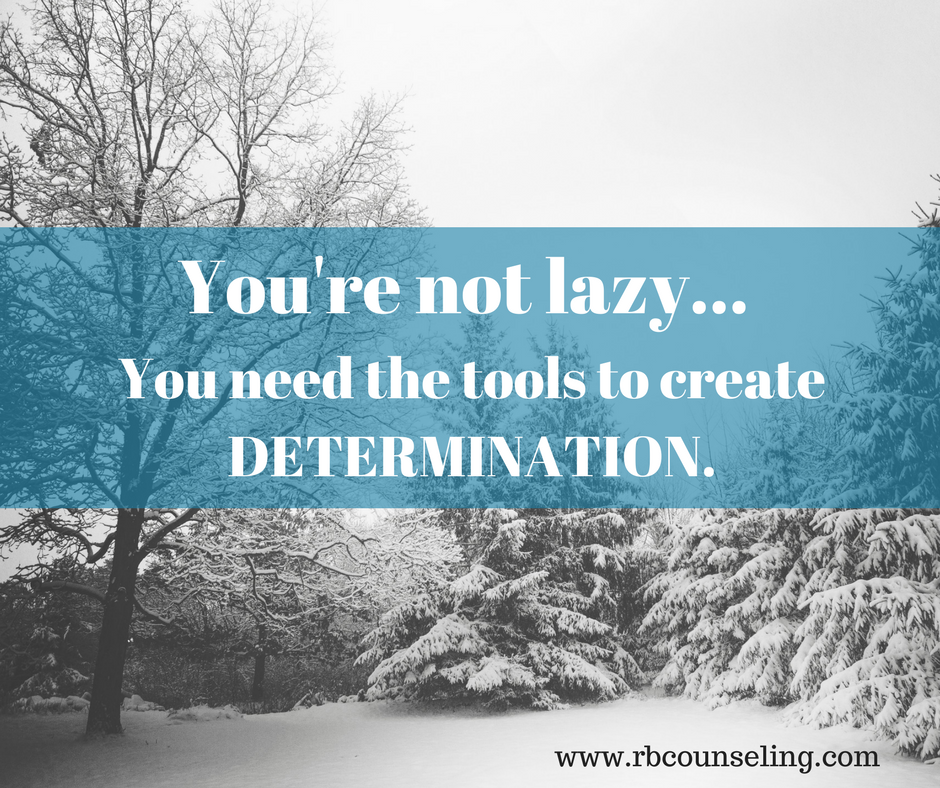You're not lazy. You need the tools to create DETERMINATION.
Clients often come into my office discouraged and with little belief in their ability to successfully make changes in their lives. They say, "I know what I need to do. I'm just too lazy to do it."
Lazy.
That word has never sat well with me. Not only because of the self-deprecating nature, but also because it doesn't feel accurate. When I explore the lives of clients, they are anything but lazy. I'm talking about people who have developed thriving careers, navigated difficult boundaries with their children, and cultivated meaningful relationships... Not exactly my definition of lazy.
But, if it's not "lazy" then what is it?
The other morning, I was watching an inspirational video on YouTube titled: START YOUR DAY RIGHT - Best 2017 Motivational Videos for Success in Life & Studying (see full video here). It is comprised of snippets of motivational speeches. And, while the content is geared toward business owners/entrepreneurs, I believe there are several relevant pieces for anyone attempting to make a behavior change.
One portion of the video shows Mel Robbins candidly describing her own challenges with finding motivation to complete even the easiest of tasks: "There are moments all day long... where I knew, what I should do. And, if I didn't move within five seconds, my brain would step in and talk me out of it... You have about a five second window in which you can move from idea to action before your brain kicks into full gear and sabotages any change in behavior."
What she's talking about falls in line with my concept of "Think Less. Do More." We must not allow our brain the opportunity to engage in the back-and-forth argument of action vs. inaction. If we do, the survival part of the brain will inaccurately kick-in and inaction will always win.
Think about a recent time when you had the thought to go workout or meal prep for the upcoming week or finish a load of laundry. What was the next thought - I can do later? I don't have time? I'm too tired?
If we can recognize and stop those secondary thoughts, we increase the likelihood of acting - not because we are motivated to act, but because we are determined to not let that inaccurate secondary thought dictate our behavior. We are determined to move closer to our goal.
The gist of all of this? Struggling to create a new behavior/habit is not about being lazy or even unmotivated. It's about determination. Being determined to take the steps that will lead us closer to our goal. Lasting change comes from repeated practice of new behaviors.




